10 Best Predictive Analytics Software and Tools
predictive analytics uses different methods of analyzing and interpreting various data to create a near a current forecast of events that are likely to occur in some sectors of your business which impacts its overall performance.
Predictive analysis covers statistical techniques for studying data. This includes data mining, predictive modeling and machine learning as methods of making predictions about future events. Predictive analytics has the potential to:
– Spot customers who are likely to cancel a service or not renew it.
– Identify transactions that could be fraudulent.
– Create a preventive maintenance schedule.
– Business leaders can use predictive analytics to increase the – chances of success for many initiatives or to test a variety of scenarios quickly.
In tuis article, we will describe Best Predictive Analytics Software and Tools.
Top 10 Software
1. ALTAIR
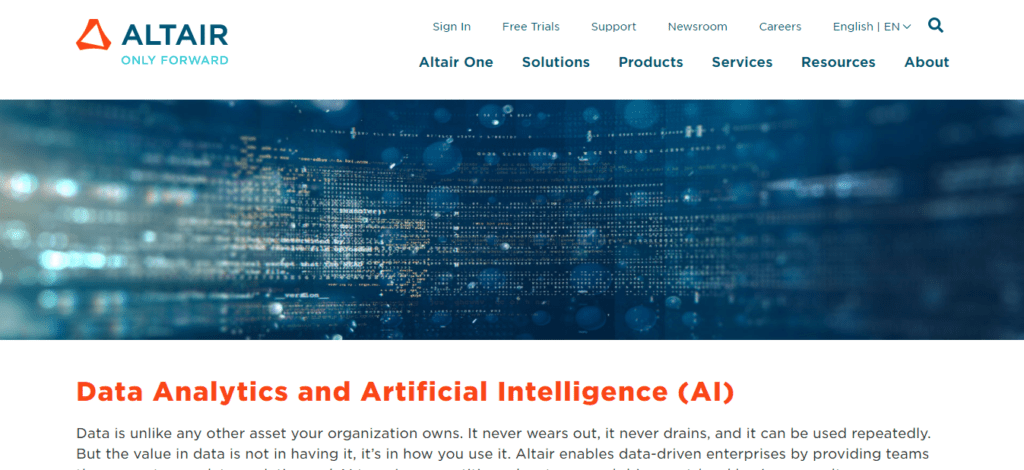
Altair Engineering (Troy, Mich., U.S.) a global technology company providing solutions in data analytics, simulation, and high-performance computing (HPC), announced on Oct. 8 the acquisition of M-Base Engineering + Software GmbH (M-Base, Aachen, Germany), an international supplier of material database and material information systems, with a focus on plastics. Altair notes that the acquisition will allow the company to offer the most comprehensive, high-fidelity plastics database available on the market, which will directly connect with Altair’s powerful solvers.
Further, acquiring M-Base is said to be an important additional step to deliver comprehensive material information and infrastructure to predict and optimize product performance through simulation. M-Base’s offering covers the complete lifecycle of material data, from testing and test evaluation to computer-aided engineering (CAE) interfaces, with a focus on plastics. M-Base also reportedly brings to Altair first-rate plastics material data supplied directly by material producers, deep knowledge in material database technology and plastics material data preparation from raw data to data consumable by designers and engineers.
M-Base is the official software supplier to Computer Aided Material Preselection by Uniform Standards (CAMPUS), what is said to be the world’s most successful plastic material database adhering to rigorous international standards. Altair will continue to invest in CAMPUS to ensure consistent, high-quality material data for customers to drive accurate simulation results.
2. ANACONDA
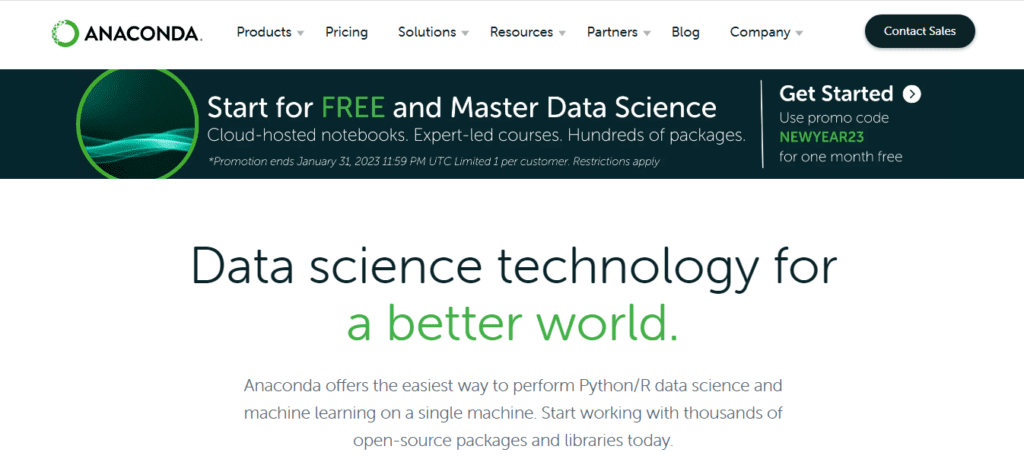
Anaconda is the most trusted Python data science platform with more than 25 million users across 250 countries serving 1 in 3 of the G2000.
With more than 15 million users, Anaconda is the world’s most popular data science platform and the foundation of modern machine learning. Anaconda Enterprise delivers data science and machine learning atspeed and scale, unleashing the full potential of our customers’ data science and machine learning initiatives.
That aims to simplify package management and deployment. The distribution includes data-science packages suitable for Windows, Linux, and macOS. It is developed and maintained by Anaconda, Inc., which was founded by Peter Wang and Travis Oliphant in 2012. As an Anaconda, Inc. product, it is also known as Anaconda Distribution or Anaconda Individual Edition, while other products from the company are Anaconda Team Edition and Anaconda Enterprise Edition, both of which are not free.
3. DATABRICKS

Databricks is a software platform that helps its customers unify their analytics across the business, data science, and data engineering. It also provides a Unified Analytics Platform for data science teams to collaborate with data engineering and lines of business to build data products.
The company was founded in 2013 and is headquartered in San Francisco, California.
Databricks Data Science & Engineering (sometimes called simply “Workspace”) is an analytics platform based on Apache Spark. It is integrated with Azure to provide one-click setup, streamlined workflows, and an interactive workspace that enables collaboration between data engineers, data scientists, and machine learning engineers.
For a big data pipeline, the data (raw or structured) is ingested into Azure through Azure Data Factory in batches, or streamed near real-time using Apache Kafka, Event Hub, or IoT Hub. This data lands in a data lake for long term persisted storage, in Azure Blob Storage or Azure Data Lake Storage. As part of your analytics workflow, use Azure Databricks to read data from multiple data sources such as Azure Blob Storage, Azure Data Lake Storage, Azure Cosmos DB, or Azure SQL Data Warehouse and turn it into breakthrough insights using Spark.
4. DATAIKU
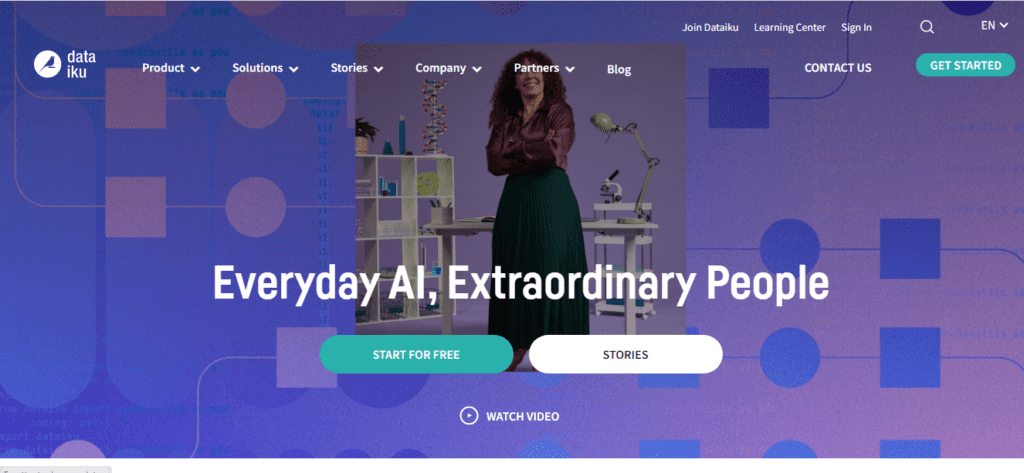
Dataiku one of the world’s leading Enterprise AI and machine learning platforms, was recognized as one of the 25 Highest Rated Private Cloud Computing Companies To Work For During the COVID Crisis in a list released by Battery Ventures, a global investment firm and cloud investor, with data specifically provided by Glassdoor*, the worldwide leader on insights about jobs and companies. The list highlights 25 privately held companies—all business-to-business, cloud-computing companies–where employees reported the highest levels of satisfaction at work during the first six months of the pandemic, according to employee feedback shared on Glassdoor.
They also highlight the potential links between positive company culture and overall corporate performance and growth, according to Neeraj Agrawal, a Battery general partner who specializes in cloud investing. This year, 10 of the top 25 private companies announced financing rounds during the pandemic (through Nov. 1) worth more than $1.9 billion combined, according to Crunchbase.
5. DATAROBOT

DataRobot, the pioneer in automated machine learning, quickly earned its touted reputation by allowing companies without the data expertise or resources to efficiently create predictive models that extract clear-cut business value from their data.
DataRobot makes machine learning more accessible to a broader user set of employees who may not have a data science background. There’s also a greater efficiency enabled for organizations that need to run a large number of models in parallel, and when speed and precision are what creates a competitive edge.
Precision Modeling : No matter how complex the data, DataRobot sorts through thousands of algorithms to give users the most precise predictive model, which agrees with Pomerol Partners’ philosophy of shifting from prescriptive analytics to predictive analytics. DataRobot allows precise models, and therefore expert business recommendations, to be created in days as opposed to months.
6. DOMINO
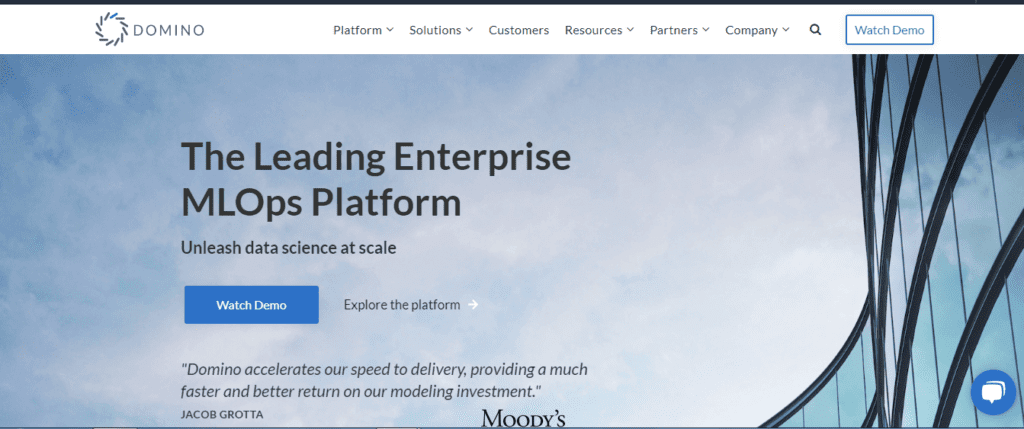
Domino Data Lab empowers data science teams with the leading, open data science platform that enables enterprises to manage and scale data science with discipline and maturity. Model-driven companies including Allstate, Dell Technologies, and Bayer use Domino as a data science system of record to accelerate breakthrough research, increasens collaboration, and rapidly deliver high-impact models.
another definition: Domino Data Lab is Developer of an enterprise data science management platform intended to help companies develop and deploy ideas with collaborative, reusable, reproducible analysis. The company’s platform accelerates research, speeds model deployment, and enhances collaboration for code-first data science teams at scale, enabling data scientists to develop medicines, grow productive crops, adapt risk models to major economic shifts, build cars and enhance customer assistance.
7. GOOGLE CLOUD
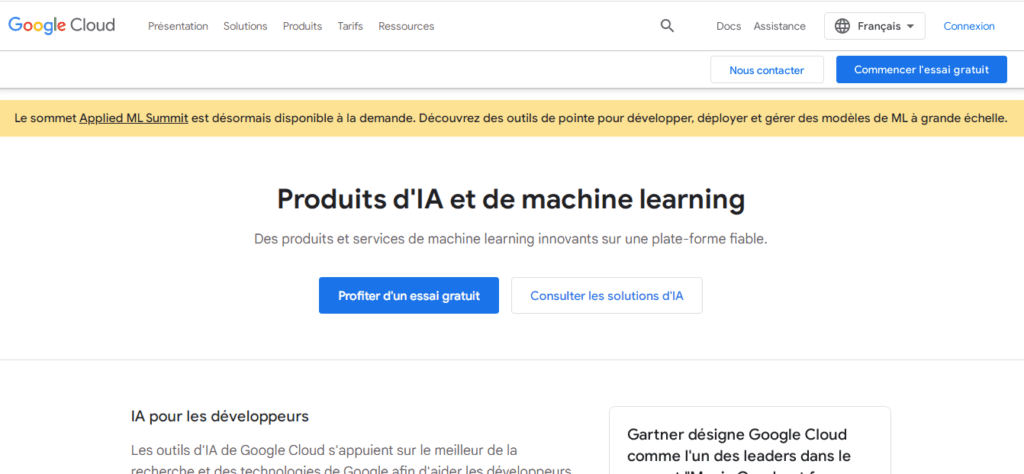
Goolge Cloud Platform is public cloud-based services offered by the world’s largest search engine Google. There is a variety of cloud computing services offered by GCP. Services offered by the Google computing platform can be accessed by IT professionals, software engineers, cloud administrators, and other businesses via a dedicated corporate network or public internet.
Google cloud computing platform is one of the leading cloud resources providers and can be used to deploy and operate applications and programs on the web. It provides a place for enterprises and individuals so they can build and run their apps, software, and solutions. GCP uses the internet connection to connect the business/app with its users. When a website, application or software is deployed on Google Cloud Platform, Google keeps proper track of its resources used. Tracked resources include processing power, database queries, data storage, and connectivity, etc. When using Google cloud computing services, you pay for resources used on a per-second basis. Moreover, you can also get discounts when an application or service used by more customers on the web.
8. H2O.AI

H2O.AI is a leading AI cloud company in its mission to democratize AI for all. Costumers use the H2O AI Hybrid Cloud Platform to solve complex business problems, accelerate the discovery of new ideas, and build, operate and innovate rapidly.
H2O is a fully open-source, distributed in-memory machine learning platform with linear scalability. H2O supports the most widely used statistical & machine learning algorithms including gradient boosted machines, generalized linear models, deep learning, and more. H2O also has an industry-leading AutoML functionality that automatically runs through all the algorithms and their hyperparameters to produce a leaderboard of the best models.
The H2O platform is used by over 18,000 organizations globally and is extremely popular in both the R & Python communities.
Powerful AI 4 to make the world a better place is guided by the mission of a good ethical and responsible AI company. It enables all companies to become an AI companies. The industry-leading and award-winning H2O driverless AI makes this possible through ‘Make Your Own AI’.
9. KNIME
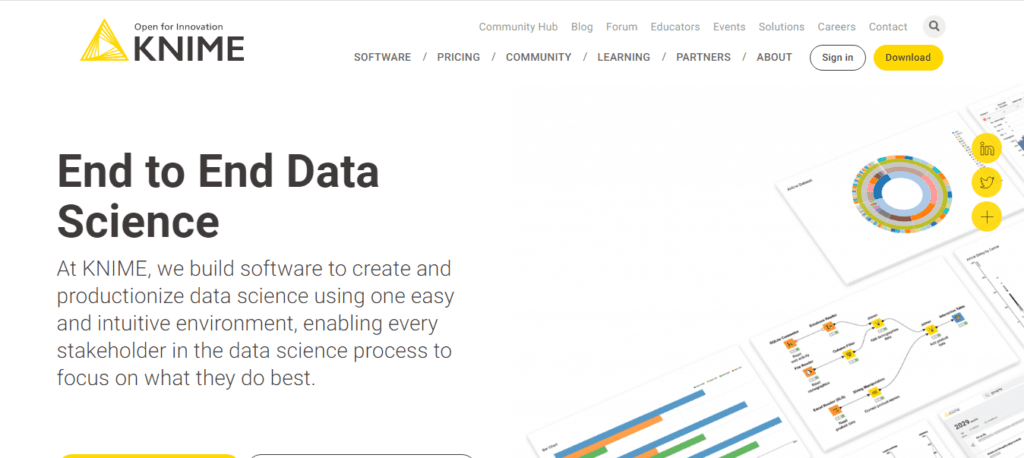
KNIME, the open source data science company, today announced a strategic partnership with Snowflake, the Data Cloud company, to democratize access to data analytics across all roles and departments.
Understanding data is critical for creating business value. With the global data analytics market worth more than $200 billion, it’s necessary for as many people as possible across roles, departments and industries to have access to analytics in their daily jobs for overall better productivity.
he joint offering means that users can access and manipulate data in Snowflake with a low-/no-code platform at no cost. KNIME Analytics Platform is a fully featured analytics workflow “designer” that can be used in conjunction with Snowflake’s Data Cloud to perform a broad range of analytics tasks from data prep to data science. Users can leverage the drag-and-drop interface to prepare and explore data, rapidly build analytical models, create data apps, and present results in BI tools such as Tableau or Power BI.
10. MATHWORKS

MathWorks, a global leader in mathematical computing software, expanded their headquarters with a new campus to accommodate the company’s continued growth. Gensler worked closely with MathWorks on the development strategy and provided master planning, architectural, and interior design for the new 550,000-square-foot complex. As designers for MathWorks’ Apple Hill Campus renovation, Gensler was uniquely positioned with lessons learned and a deep understanding of the company’s culture and objectives. The purpose-driven design for the new campus creates an environment and experience that inspires the work process and builds organizational community. Comfortably scaled workplace wings are organized around a central communal hub and sky-lit spiral stair. Amenities include a dining hall, grab-and-go cafe, and outdoor terrace. Throughout the campus, spaces are designed to maximize natural light and views.
Conclusion
Predictive analytics platforms look at historical data and try to spot patterns. The process relies on data such as customer purchases, weather information or banking habits, statistics such as regression analysis and assumptions that the future will follow trends from the past.
Some types of predictive analytics software use machine learning to revise algorithms based on learnings from the data collected. Data experts and business department leaders can use predictive analytics to test new theories and products before committing to these decisions in the marketplace.





